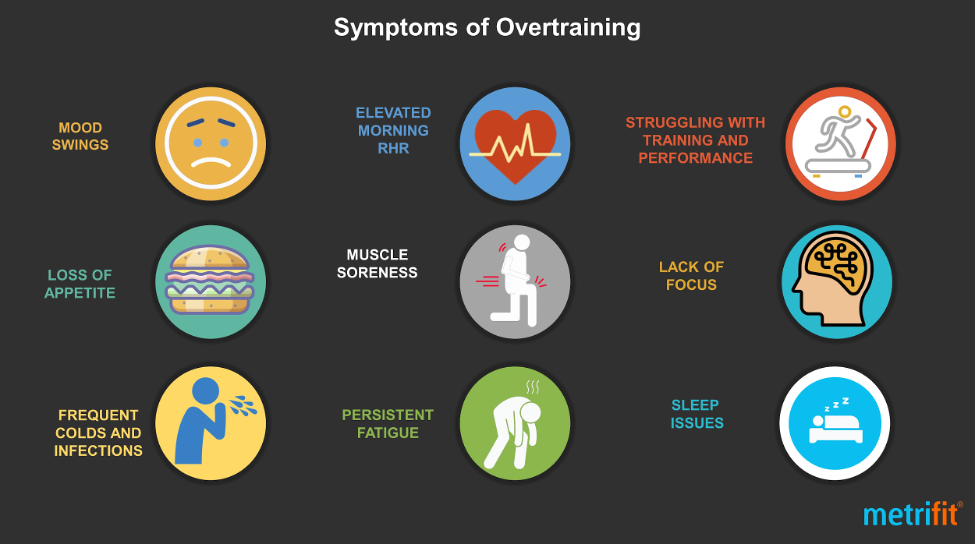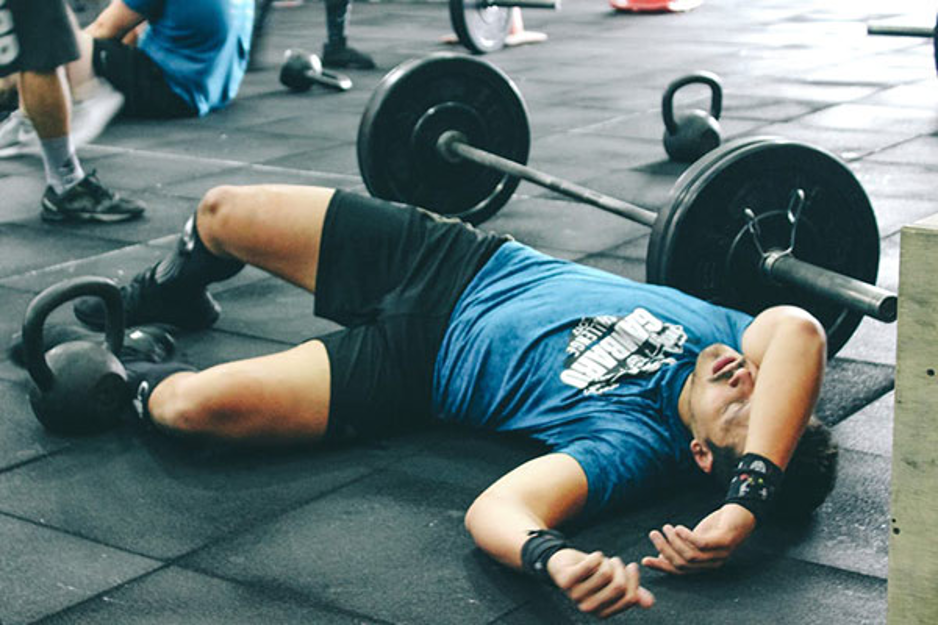Fatigued? Unmotivated? Decline in performance? These are some symptoms of overtraining syndrome. Overtraining syndrome is when an individual’s workload exceeds the body’s ability to recover, which in turn is detrimental. The main causes of overtraining are increasing the load, frequency, intensity, or duration of an exercise routine. At first, the body feels pumped and strong, but the continuation of that intense routine takes a toll on the body due to lack of recovery or failure to identify the early signs of overtraining. Here are some symptoms of overtraining syndrome and solutions.
Symptoms:
- Decreased performance over 1-2 week period
- Increased resting heart rate and/or blood pressure
- Decreased body weight
- Reduced appetite or loss of appetite; nausea
- Disturbed sleeping patterns and inability to attain restful sleep; insomnia
- Muscle soreness and general irritability
- Lack of motivation/adherence
- Fatigue

Solutions:
- Take a rest day or two
- Fitness goals are very important, just as long as it is not detrimental to the body. It is okay to take a day off of your exercise routine to recover your body from all the strain it’s put under.
- Resting does not necessarily mean bed rest. Take the time to stretch, and release some tension in the body via:
- Massage
- Yoga
- Brisk walks
- Meditation
- Deload
- Reduce the load, volume, and rate over your typical workout.
- Use this time to work on form with lower weight and obtain a range of motion.
- Train with 50-70% of your normal load.
- Reassess your nutrition and Hydrate!
- The body loses mass amounts of fluids. Remember to always drink electrolytes to replenish those fluids.
- With an increase of training duration and intensity, it is important to reassess your nutrition. You might need to increase the amount of calories consumed and it is also important to think quality over quantity when it comes to food.
- Just think of a sports car, you wouldn’t want to give it low end gas instead of the premium for performance.
- Your body is a temple, and you should treat it right with what it needs!
If you still feel the effects of overtraining, discuss with your physical therapist on suggested exercises or relaxation techniques to help you recover faster.
